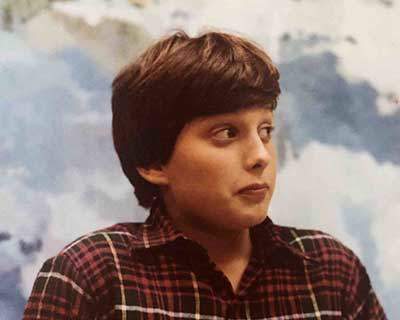Getting to the Heart of It
By CPMAstudio In InsightFace to face with my students, only one resource is at my immediate command: my identity, my selfhood, my sense of this “I” who teaches—without which I have no sense of the “Thou” who learns. – Parker J. Palmer
A great teacher takes you right to the heart of their subject because it lives in their heart also. Here’s where I first learned that, years before I started learning martial arts, decades before I became a teacher myself.
 Mrs. Hamlet was my 8th-grade social studies teacher, and for her, it was life or death. She had marched with Dr. Martin Luther King, Jr., she lived the change she wanted to see in the world, and she was not fooling around. The chairs were set in a circle around the edge of the classroom; there was nowhere to hide. Mrs. Hamlet commanded the center of the room like a professional prizefighter. She wore a dress and high heels every day, she never sat down to rest, there was never a hair out of place. We had to sit up, both feet on the floor. Even the toughest kids knew better than to screw around near her room, she never closed the door, the hallways outside it were always quiet. She started her first class with a question. “Now, listen UP, my babies! Do you know what a Revolution is?”
Mrs. Hamlet was my 8th-grade social studies teacher, and for her, it was life or death. She had marched with Dr. Martin Luther King, Jr., she lived the change she wanted to see in the world, and she was not fooling around. The chairs were set in a circle around the edge of the classroom; there was nowhere to hide. Mrs. Hamlet commanded the center of the room like a professional prizefighter. She wore a dress and high heels every day, she never sat down to rest, there was never a hair out of place. We had to sit up, both feet on the floor. Even the toughest kids knew better than to screw around near her room, she never closed the door, the hallways outside it were always quiet. She started her first class with a question. “Now, listen UP, my babies! Do you know what a Revolution is?”
She proceeded to tell us.
“A Revolution (her voice had italics) is a permanent change in society.” She explained that “A revolutionary creates permanent change!” Mrs. Hamlett compared revolution to an act of revolt and explained how a revolt is an unsuccessful, or incomplete revolution. It’s a step on the way, but the change is far from certain. She then described rebellion, and how a rebel may act against society, but may not always have a direction or end result in mind, that they are simply rebelling, they are against something, but not necessarily for something else. We, as Americans, were living in a society based on Revolution, on effective, permanent and positive change.
To this day, I think of them as the Three R’s, Rebellion, Revolt and Revolution.
She explained the Three R’s in the first fifteen minutes of our first day of class. I was hooked, so were a lot of other kids. Even kids that hated school loved Mrs. Hamlet’s class. We went on to learn about the American and French Revolutions for the next ten months. I got an “A”, it was the only class I got an “A” in that year. It was my first experience with someone who believed that their efforts as an educator were critical, a matter of life and death.
She never had to tell us why the Three R’s were important. She never had to tell us her backstory to give her teaching credibility or weight (I found out about her role in the Civil Rights Movement from another teacher, a formidable force in his own right, a Vietnam Veteran who taught across the hall from her). She never played favorites or forced her own agenda on us. She taught right from the textbook that the New Jersey Department of Education gave her. She just showed us what had happened, and gave us a powerful sense of what our history meant for us.
Mrs. Hamlet’s version of the Three R’s gave me a yardstick to measure the world with and to measure myself. She took a big idea, scaled it down into a little idea we could grasp, and then showed us how to scale it back up again to make sense of something. “Am I creating change, or just rebelling?” is a question I ask myself all the time. It was how I knew that I had found my calling when I got into martial arts in college. Martial Arts changed my health, improved my social life, transformed me from a mediocre student to an exceptional one, and gave me another tool to measure the world. It was my own, personal revolution.
Each of us is a revolutionary, what is the change you are working to create in the world?
— Andy



